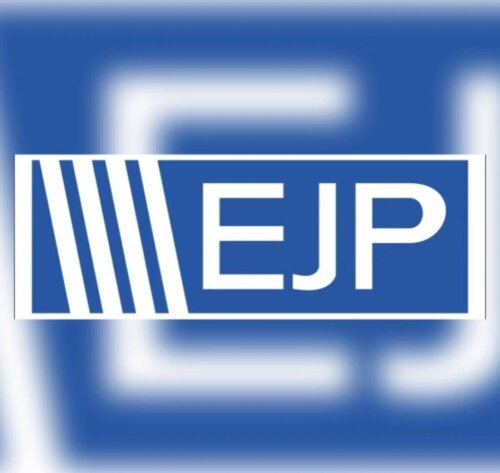Best Collaborative Law Lawyers in Mar del Plata
Share your needs with us, get contacted by law firms.
Free. Takes 2 min.
Free Guide to Hiring a Family Lawyer
List of the best lawyers in Mar del Plata, Argentina
1. About Collaborative Law in Mar del Plata, Argentina
Collaborative Law, or derecho colaborativo, is a process for resolving family disputes without going to trial. In Mar del Plata, it involves each party and their lawyer committing to a cooperative negotiation, with a focus on preserving relationships and practical outcomes for children and families. If negotiations fail, the parties and their lawyers typically cannot continue in the same collaborative track and must hire new counsel for court proceedings. This makes early settlement more predictable and private than traditional litigation.
In practice, Mar del Plata lawyers often use joint sessions, information sharing, and structured exchanges to reach binding agreements on custody, support, and division of assets. The approach is anchored in the broader Argentine framework for dispute resolution, which emphasizes mediation and collaborative practices within the Civil and Commercial Code environment. The local courts and bar associations increasingly recognize and support collaborative processes as a legitimate option for residents.
2. Why You May Need a Lawyer
-
You want to avoid a public, adversarial custody battle in Mar del Plata. A lawyer trained in collaborative practice can guide you toward a child-centered agreement that prioritizes routines, schools, and visitation for your children.
-
You own a family business in Mar del Plata and require a structured, fair division of business interests and assets. A collaborative lawyer can help draft a plan that protects the business while addressing equity between spouses.
-
You and your partner share complex assets abroad or in multiple Argentinian locations. A lawyer can coordinate disclosures, valuations, and a cross-border settlement approach to minimize disputes.
-
You want to preserve privacy. Collaborative negotiations occur out of court, reducing the public exposure inherent in divorce filings in Mar del Plata courts.
-
You anticipate ongoing co parenting and need a durable, detailed parenting plan. A collaborative lawyer helps translate desires into enforceable schedules and contingencies.
-
You value a faster process than traditional litigation. While timelines vary, collaborative settlements often finalize within 3 to 6 months in stable cases around Mar del Plata, subject to cooperation.
3. Local Laws Overview
Código Civil y Comercial de la Nación
El Código Civil y Comercial de la Nación regula las bases de la resolución de conflictos fuera del juicio mediante acuerdos y mediación. Este marco legal favorece soluciones pactadas para temas de familia, como tenencia, alimentos y partición de bienes. Su aplicación es nacional y afecta a todas las jurisdicciones, incluida Mar del Plata.
En Mar del Plata, los abogados que practican derecho colaborativo suelen apoyarse en estas normas para estructurar acuerdos vinculantes y claros. El código fomenta acuerdos que protejan a los menores y reduzcan la confrontación entre las partes.
El Código Civil y Comercial de la Nación facilita la resolución de disputas mediante acuerdos extrajudiciales y mecanismos de mediación como opción preferente.
Fuente: Código Civil y Comercial de la Nación
Código Procesal Civil y Comercial de la Provincia de Buenos Aires
La provincia de Buenos Aires, donde se ubica Mar del Plata, tiene su propio marco procesal que regula procedimientos civiles y comerciales, incluyendo aspectos de mediación y resolución de conflictos. Este código provincial influye en cómo se gestionan acuerdos y qué requisitos se exigen para su homologación en tribunales locales.
Los abogados en Mar del Plata trabajan dentro de este marco para asegurar que los acuerdos colaborativos sean ejecutables ante el Poder Judicial provincial cuando sea necesario.
Fuente: Ministerio de Justicia y Derechos Humanos de la Provincia de Buenos Aires
Mediacion y resolucion de conflictos - Normas relevantes
Además de la normativa nacional y provincial, existen pautas administrativas que alientan la mediación y los acuerdos extrajudiciales en familia. Estas pautas confirman que la colaboración entre abogados y sus clientes es una opción válida y eficaz para resolver disputas en Mar del Plata.
Fuente: Mediación - Ministerio de Justicia y Derechos Humanos, Poder Judicial de la Nación
4. Frequently Asked Questions
What is collaborative law in Argentina?
Collaborative law is a non adversarial method for resolving family disputes with each party represented by a solicitor. It aims to reach mutual agreements outside court proceedings in Mar del Plata and surrounding areas.
How does collaborative law work in Mar del Plata?
Parties sign a collaborative agreement and share information openly. Their lawyers guide negotiations toward a binding settlement, with court involvement only if negotiations fail and new counsel are necessary.
What is the role of an attorney in the process?
The attorney in collaborative law acts as an adviser and negotiator, ensuring legal protections, fair disclosures, and enforceable agreements for custody, support, and property.
How much does collaborative law cost in Mar del Plata?
Costs include attorney fees for two or more lawyers, expert evaluations if needed, and mediation sessions. Overall, costs are typically lower than protracted court battles, but depend on case complexity.
Can I start a collaborative process if my partner refuses?
Yes, you may initiate the process. If the other party declines, you can pursue traditional paths, but your initial steps will focus on a non adversarial strategy as far as possible.
Should I use a local Mar del Plata lawyer or someone from outside the city?
Local experience matters. A Mar del Plata solicitor familiar with provincial rules and local courts can streamline filings and scheduling.
Do I need to sign a formal collaborative agreement?
Yes, the agreement outlines the process, the roles of each lawyer, and the commitment to resolution outside litigation. It helps prevent unilateral withdrawals later on.
Is collaborative law suitable for complex assets?
Yes, with careful asset disclosure and expert input, complex corporate, real estate, or business interests can be handled through collaborative negotiation.
How long does the process typically take in Mar del Plata?
Most cases move faster than court litigation, with settlements often achievable in 3 to 6 months if both sides cooperate and disclose needed information promptly.
What if we cannot reach an agreement?
If negotiations fail, parties typically switch to traditional litigation and hire separate counsel for court proceedings.
Is mediation the same as collaborative law?
No, mediation involves a neutral mediator guiding the parties to an agreement. Collaborative law involves each party’s own lawyer actively negotiating within a structured process.
What should I bring to a first collaborative meeting?
Bring identification, financial documents, asset valuations, debts, a parenting plan idea, and any existing agreements. This helps start transparent negotiations.
5. Additional Resources
-
Poder Judicial de la Nación - information on mediation and procedural options in family matters. This national authority provides guidance on dispute resolution within the Argentine court system. Link: Poder Judicial de la Nación
-
Ministerio de Justicia y Derechos Humanos - Mediacion y resolucion de conflictos. This government department outlines mediation processes and best practices for resolving disputes outside the courtroom. Link: Mediacion
Fuente normativa y de apoyo adicional:
- Código Civil y Comercial de la Nación - texto oficial y vigente de las normas que impactan acuerdos extrajudiciales.
6. Next Steps
- Clarify your goals for resolution in Mar del Plata, including timeframes and key issues such as custody and assets.
- Identify potential collaborative-law solicitors in Mar del Plata by reviewing local firm websites and client testimonials.
- Check each candidate’s credentials and specialization in family law and collaborative practice, then request a preliminary consultation.
- Prepare a package of supporting documents: financial statements, asset valuations, and parenting plans for discussion.
- Ask about the process, fees, and timeline during initial meetings; request a written engagement letter outlining the collaboration agreement.
- Choose a legal counsel who demonstrates transparent communication and a clear plan for non litigated resolution.
- Establish a start date for the collaborative process and set expectations with your partner on information sharing and scheduling.
Lawzana helps you find the best lawyers and law firms in Mar del Plata through a curated and pre-screened list of qualified legal professionals. Our platform offers rankings and detailed profiles of attorneys and law firms, allowing you to compare based on practice areas, including Collaborative Law, experience, and client feedback.
Each profile includes a description of the firm's areas of practice, client reviews, team members and partners, year of establishment, spoken languages, office locations, contact information, social media presence, and any published articles or resources. Most firms on our platform speak English and are experienced in both local and international legal matters.
Get a quote from top-rated law firms in Mar del Plata, Argentina — quickly, securely, and without unnecessary hassle.
Disclaimer:
The information provided on this page is for general informational purposes only and does not constitute legal advice. While we strive to ensure the accuracy and relevance of the content, legal information may change over time, and interpretations of the law can vary. You should always consult with a qualified legal professional for advice specific to your situation.
We disclaim all liability for actions taken or not taken based on the content of this page. If you believe any information is incorrect or outdated, please contact us, and we will review and update it where appropriate.










